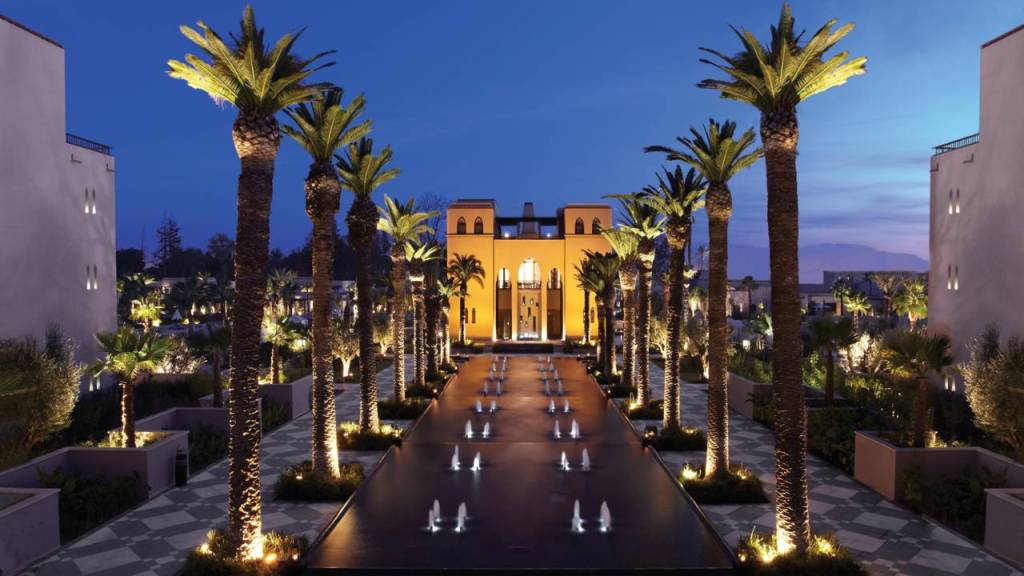Sub-Saharan Africa is a promising market for luxury goods as urbanisation‚ economic development and increased affluence among the expanding middle class drive growth across the sector.
The region is experiencing the globe’s second-fastest economic growth‚ after Asia Pacific‚ and between 2008-2013 the luxury goods sector grew 35%‚ the Global Powers of Luxury Goods report by professional services firm Deloitte said on Wednesday.
Rodger George‚ Africa leader for consumer business at Deloitte said urbanisation had led to more people becoming aspirational and having the money to back those aspirations.
Although significant risk remained in emerging markets‚ and growth was from a low base‚ the appetite for luxury goods in these markets was burgeoning.
“We expect luxury goods market growth in developed economies to pick up speed for the rest of this year. And for those emerging markets that have not accumulated too much debt‚ like much of sub-Saharan Africa‚ the long-term outlook is certainly positive‚” Mr George said.
SA and Nigeria are regarded as the region’s emerging markets‚ and rising purchasing power has seen brands make a move for the continent.
Ermenegildo Zegna‚ purveyors of made-to-measure suits for Hollywood stars such as Tom Cruise and George Clooney‚ opened a store in Lagos last year‚ and it has three more in the pipeline.
Hugo Boss also has an outlet in the vast city and Prada is expected to follow suit.
Mr George said that while there was a lot intra-African shopping being done through South Africa‚ “you do have situations where for people in Nigeria the UK is closer and there is also a wider range of luxury goods than in SA”.
Based on data collected on tax-free shopping in the UK‚ Nigerians are among the top global spenders.
In addition to shopping in South Africa‚ the east African market tends to also buy in Dubai‚ Mr George said.
“While South Africa has some luxury brands and more are opening‚ the traditional luxury centres like Paris and London are the big attraction for Africans‚” he said.
Aspirations to expand are‚ however‚ being capped by the lack of suitable real estate and quality shopping centres in most of Africa’s up-and-coming powerhouses.
“Luxury manufacturers like to own as much of the supply chain as possible so they can secure quality and pricing. To own that whole chain in Africa might be difficult‚ logistically. Also the practicalities of opening up a shop in a foreign country where you haven’t got a local partner is quite difficult‚ so some will look at the franchise model‚” Mr George said.
South Africa‚ with its array of malls‚ remains the continent’s most developed luxury retail sector. Although its economy has slowed‚ demand for designer trappings among locals remains robust.
An indicator of this was the automotive market in South Africa‚ which witnessed notable growth for Porsche and Maserati purchases‚ the report said.
“In South Africa‚ the luxury sector is quite resilient… people buy these goods because they want to and because they can afford to‚ not because they need to.
“A lot of the hardships are being faced by interest-rate sensitive people‚ those paying off bonds and cars — who are also portion of the luxury buyers — but the real upper-end luxury stuff is being bought by those that have a lot of wealth at their disposal‚” Mr George said.
Research by WealthInsight shows South Africa has about 47‚464 high net worth individuals (people with assets in excess of $1m) with a cumulative worth of $200bn.
The relatively large number of high-income earners have already attracted brands such as Cartier‚ Louis Vuitton‚ Burberry‚ Gucci‚ Montblanc and Salvatore Ferragamo. More are set to make a splash at exclusive Johannesburg malls‚ such as Sandton City and Hyde Park Corner‚ where luxury goods labels tend to be concentrated.
A study by US-based Bain & Co earlier this year revealed that the South African market was “outperforming expectations” for personal luxury goods such as handbags and beauty products‚ with anticipated growth of 3%-5% this year — slightly above Europe’s 2%-4% and on par with Asia Pacific.
Liberty Group and Pareto‚ the owners of Sandton City‚ are reconfiguring space in the up-market centre to create Diamond Walk — a R200m thoroughfare between the mall and the five-star Sandton Sun Hotel. Brands such as Jimmy Choo and Alexander McQueen are expected to be part of the lavish extension‚ due to open next year.
Mel Urdang‚ Liberty Properties director of retail and leasing‚ said that since the 2010 World Cup‚ South Africa’s attractiveness had grown and that a growth slowdown in Asia meant Africa as a whole was looked at more closely‚ with South Africa the primary point of entry.
Hyprop’s Hyde Park Corner will have new entrants such as Emporio Armani‚ Versace‚ Paul Smith‚ Jigsaw and Longchamp by November.
According to Fflur Roberts‚ head of luxury goods research at Euromonitor‚ Africa is a continent to watch.
“It’s becoming more attractive to investors thanks to strong growing consumer markets… South Africa is already an important market for luxury goods with its large population of high-income earners.
“When we talk of sub-Saharan countries‚ we generally don’t include South Africa because compared to the other emerging markets it is too advanced. However‚ there is still a lot of room… many of the luxury brands do not operate there (South Africa) and if they do‚ on a very small level.
“It’s definitely an area where luxury brands will be looking to move into‚” she said in a webinar (online seminar).
Rising affluence and a clamour for brand names had also made Algeria a major market for luxury goods players‚ Euromonitor said.


